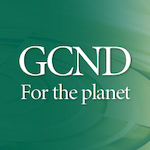Give the planet a chance if we want our patients to have a future
DOI:
https://doi.org/10.33393/gcnd.2020.1183Abstract
Climate changes have never been as dramatically apparent in our everyday life as now. It is urgent to reduce greenhouse gas emissions and mitigate the consequences of climate changes both on the planet and on human health. The indiscriminate exploitation of natural resources and the lack of shared rules are among the major causes. Recently, some economists have called for a radical change in the present economic model towards a ‘social solidarity economy’ model. G.Giraud, a French economist, called for an ecological and social transition in order to reduce the ecological footprint and deal concretely with the problem of global warming. The good news is that the solutions are there and do not have to be punitive. Health consequences of climate changes have already caused serious draw backs on public health. Doctors and scientific institutions can and must contribute to help mitigate the effects of climate change through increasing commitment and support to goodenvironmental policies. Climate emergency requires the extension of ethics and medical practice beyond their traditional mission to involve the relationship between patients, doctors and society. We propose that medical scientific institutions quickly promote the birth of task forces dedicated to addressing this problem. (GCND_planet)
References
- Papa Francesco Laudato sì, Roma, Italy: 2015.
- Nordhaus D. The climate casino. Yale: Yale University Press 2013.
- Zamagni S, Bruni L. L’Economia civile. Milano: Il Mulino 2015.
- Sachs J, The end of poverty. New York: Penguin Press 2005.
- Giraud G, Transizione ecologica. Bologna: Emibook 2015.
- Hawken Drawdown P, Milano: Feltrinelli 2018.
- The Climate Issue, San Francisco: The Economist 2019 September 19th.
- R. N. Salas and C. G. Solomon Interactive perspective: the climate crisis-health and care delivery N Engl J Med 2019;381:e13.
- R. N. Salas, D. Malina and C. G. Solomon Prioritizing health in a changing climate N Engl J Med 2019;381:773-774.












